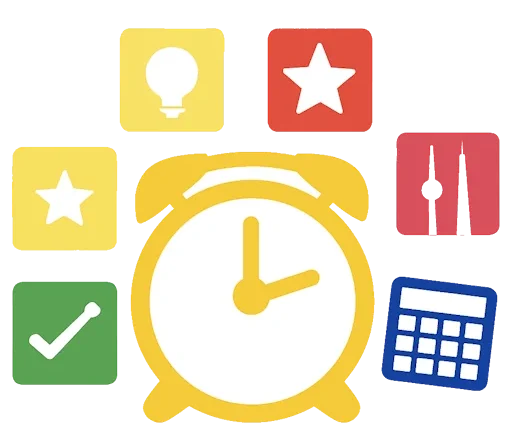How to Effectively Manage Your Domestic Helper’s Daily Tasks
Do you wonder How to Effectively Manage Your Domestic Helper’s Daily Tasks? Effectively managing your domestic helper’s daily tasks is essential to creating a harmonious and well-organized household. By focusing on clear communication, structured routines, and mutual respect, you can establish a productive and balanced working relationship. A well-managed helper ensures that the daily chores are completed efficiently, allowing you to focus on other important responsibilities. In this guide, we will discuss practical strategies to help you and your domestic helper achieve the best outcomes.
Creating a Daily Task Schedule for Your Domestic Helper
One of the most important steps in managing your domestic helper’s daily tasks is to create a clear and realistic task schedule. A well-thought-out schedule offers structure, clarity, and a sense of purpose for your helper. Start by listing all the essential daily, weekly, and monthly chores that need to be done around your household. These could include cleaning, meal preparation, childcare, and organizing tasks.
Prioritize these tasks based on their importance and allocate sufficient time for each. By categorizing tasks into manageable parts, you help your helper avoid feeling overwhelmed. For example, daily tasks such as cooking, cleaning, and laundry should be given priority, while tasks like deep cleaning or organizing storage spaces can be assigned to specific days or weeks.
Using structured scheduling tools can simplify this process further. Explore our all-in-one domestic helper schedule templates to make planning and organizing daily tasks easier.
Establishing Clear Communication Channels with Domestic Helpers
Open and transparent communication is key when it comes to managing your domestic helper’s daily tasks. Without clear communication, tasks may go uncompleted or may not meet your expectations. It’s essential to have daily check-ins or weekly reviews to assess progress, provide feedback, and make adjustments when needed. Encourage your helper to ask questions, clarify tasks, or bring up any concerns they might have.
Written communication, such as task lists or instructions, can also be highly effective in managing household duties. For example, a shared task calendar can help both you and your helper keep track of what needs to be done and by when. This approach provides accountability and ensures that both parties are always on the same page. Written communication can also help clarify complex tasks and prevent misunderstandings.
Setting Realistic Goals and Expectations
One of the biggest challenges in managing domestic helpers is setting realistic expectations. Not all helpers have the same skill set, so it’s essential to set goals based on their abilities and experience. Tailoring expectations to your helper’s capabilities will lead to better results. This may mean assigning different chores based on their strengths. For instance, your helper may excel at cleaning but need additional guidance when it comes to cooking or organizing.
It’s important to establish both short-term and long-term goals. Short-term goals can involve daily or weekly tasks like tidying up specific rooms or doing laundry. Long-term goals could include organizing storage areas, assisting with seasonal tasks, or gradually learning new skills. Breaking down tasks into smaller, manageable segments ensures that each goal is realistic and achievable.
Providing Regular Feedback and Support
Feedback is a crucial component of effective task management. When providing feedback, it’s important to be clear, timely, and specific. Positive reinforcement, such as acknowledging a job well done, encourages continued effort and motivation. If improvements are needed, constructive feedback should be given in a supportive way. Offer suggestions for improvement while recognizing the hard work that’s already been done.
Training is also a form of support that helps your domestic helper improve their performance. For instance, if your helper is responsible for cooking, offering a few recipes or teaching them specific techniques can be beneficial. Additionally, providing resources, tools, and step-by-step instructions will set your helper up for success.
Utilizing Technology for Domestic Helper Task Management

In today’s digital age, technology can make managing your household and your domestic helper’s tasks much easier. Task management apps such as Trello, Asana, or even Google Calendar can help you organize and share the daily, weekly, or monthly chores with your helper. These apps allow you to prioritize tasks, set deadlines, and provide real-time updates on completed tasks. Your domestic helper can access the task list from their phone, ensuring they always know what needs to be done.
Smart home devices, such as smart speakers or cleaning robots, can also take some pressure off your helper. These devices can be programmed to remind your helper about specific tasks or handle routine tasks like vacuuming, which frees up time for more complex responsibilities.
Why Routine and Task Management is Crucial for Domestic Helpers
Establishing a routine and managing tasks efficiently is vital for both you and your domestic helper. It provides a structured workday that prevents last-minute rushes and helps everything run smoothly. Your helper will appreciate having a clear understanding of their daily duties, and you will benefit from a well-maintained household.
When routines are followed consistently, household management becomes less stressful for everyone involved. More importantly, it fosters a sense of accomplishment and productivity in your helper, which can positively impact their overall job performance.
Managing Rest Days and Work-Life Balance of Helpers
While it’s important to manage your helper’s tasks effectively, it’s equally crucial to ensure they have adequate rest days and time to recharge. Ensuring your helper has a balance between work and relaxation improves their well-being and job satisfaction. You can use a rest day schedule to make sure your helper gets proper rest. Learn more about managing rest days with our templates.
Creating a Supportive and Positive Environment
Appreciating your helper’s efforts and showing gratitude can make a big difference. A positive work environment motivates your helper to maintain high standards and be more invested in their responsibilities. Simple gestures such as verbal praise or occasional rewards can go a long way in strengthening your relationship.
Conclusion on How to Effectively Manage Your Domestic Helper’s Daily Tasks
Effectively managing your domestic helper’s daily tasks involves thoughtful planning, clear communication, and ongoing support. By providing structured schedules and helpful feedback, you create an environment where your helper can thrive and contribute to a well-organized household. With tools like our all-in-one domestic helper schedule templates, managing your helper’s tasks becomes easier and more efficient. For additional tips and updates on How to Effectively Manage Your Domestic Helper’s Daily Tasks, follow us on Instagram.
⭐ “Over 180 happy customers in Singapore have downloaded this template – grab yours now!”
